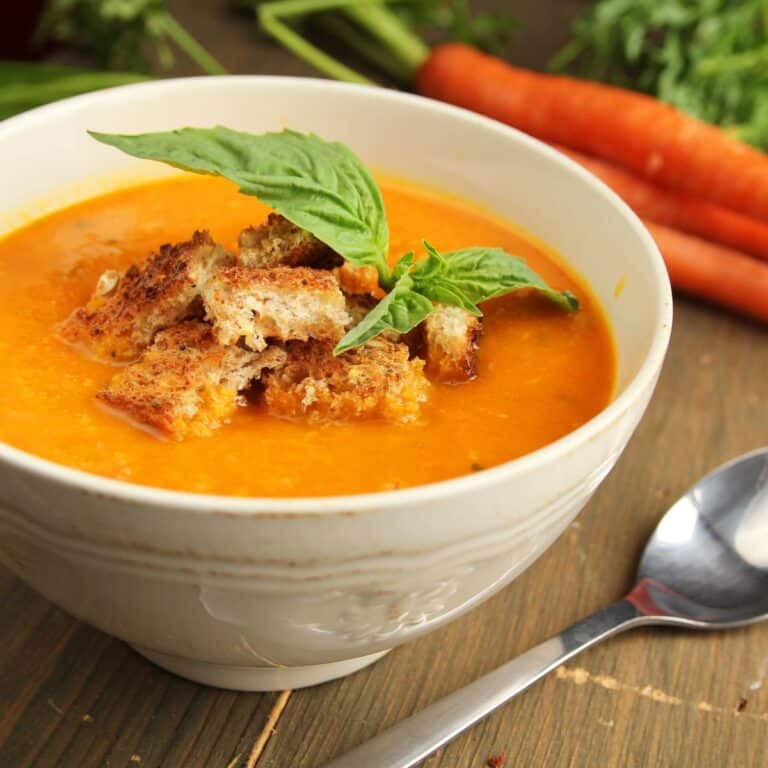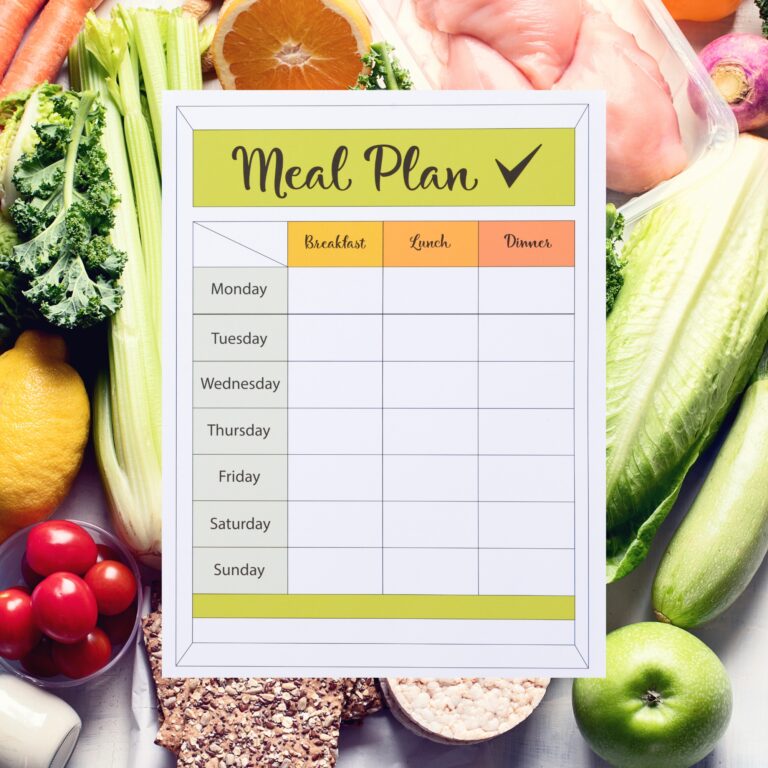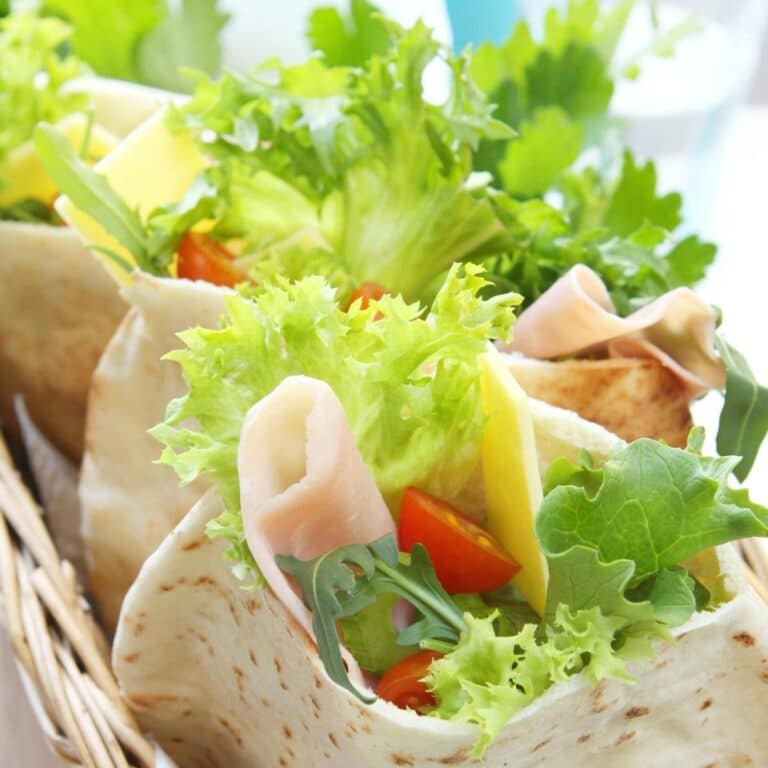Salt Substitutes for Kidney Patients
Nearly 90% of Americans consume too much sodium, risking their kidney health. You're looking to buck that trend. With the right salt substitutes, you'll protect your kidneys without sacrificing taste.
Dive into this guide to discover kidney-friendly seasonings that'll keep your meals exciting. You'll learn to navigate the spice aisle with confidence and cook up dishes that are both delicious and health-conscious.
Let's spice up your diet and safeguard your kidneys together!
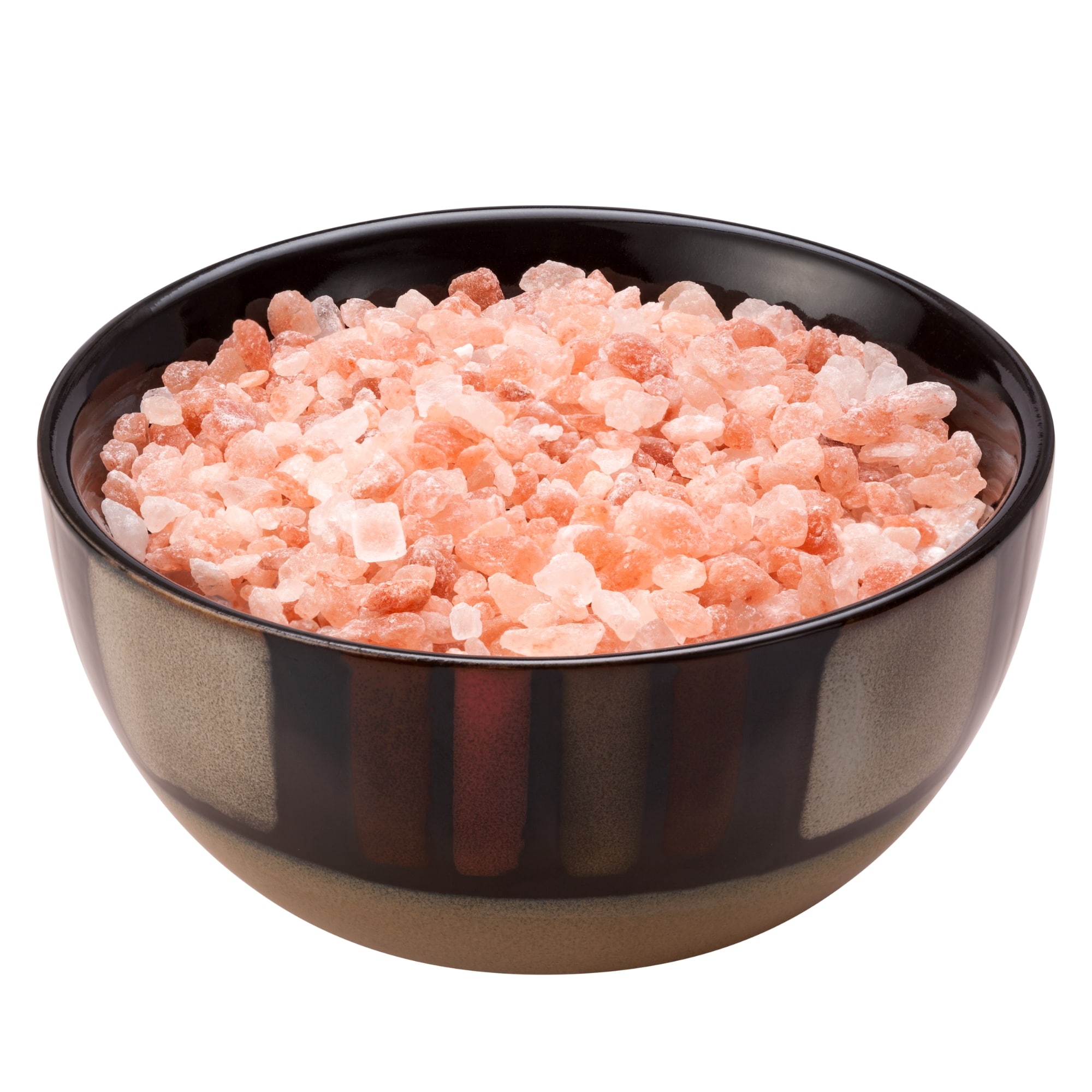
Jump to:
- Key Takeaways
- Understanding Sodium's Effects
- Flavorful Salt-Free Cooking
- Challenges of Sodium Reduction
- Low Sodium Diet Essentials
- Risky Salt Substitutes
- Navigating Spice Blends
- Truth About Specialty Salts
- Kidney-Friendly Seasoning Picks
- Salt-Free Blend Recipes
- Exploring Alternative Flavorings
- FAQs for Salt Substitutes for Kidney Patients
- Salt Substitutes for Kidney
Key Takeaways
- Sodium is a major dietary restriction for individuals with kidney disease.
- Herbs and spices are the best salt substitute for kidney patients.
- Artificial salt substitutes containing potassium chloride should be avoided.
- Specialty salts like Himalayan pink salt, kosher salt, sea salt, and rock salt are not any healthier than regular salt.
Understanding Sodium's Effects
You need to know that your kidneys are responsible for managing sodium levels in your body, and when they're compromised, sodium can accumulate and cause serious health issues. Too much sodium can lead to swelling, difficulty breathing, and even heart failure, which emphasizes the importance of monitoring your intake.
It's essential to understand that sodium is often hidden in processed foods and beverages, so reading labels is key to controlling your sodium consumption.
For More Recipes and Ideas --->> Get Your Free Meals and Recipes That Are Perfect for Pre-Dialysis Diets, Pre-Dialysis with Diabetes, or Dialysis Diets.
Sodium's Role: Kidneys
In managing your kidney health, understanding the effects of sodium is critical, as your kidneys are responsible for filtering and eliminating this mineral from your body. When kidney function is compromised, maintaining balanced sodium levels becomes a challenge. Embracing salt alternatives and focusing on sodium reduction can be pivotal. Flavor enhancement doesn't have to come at a cost to your health, while trying to avoid consuming the American Diet.
| Aspect of Kidney Health | Emotional Impact |
|---|---|
| Kidney Function | Hope for stability |
| Sodium Levels | Anxiety over imbalance |
| Flavor without Salt | Joy in new discoveries |
These simple shifts in your diet can protect your kidneys and your heart while still enjoying your meals. Let's now turn our attention to the risks of excess sodium, which can further complicate your condition.
Excess Sodium Risks
Recognize that consuming too much sodium can exacerbate your kidney condition, leading to serious health complications. Understanding sodium's effects is crucial, as sodium's role in your kidneys is to help maintain fluid balance.
However, when kidneys are compromised, they can't filter out excess sodium efficiently. This can cause fluid retention, high blood pressure, and strain on your heart.
Be aware of hidden sodium sources in processed foods and be prepared for a taste adjustment period as you reduce salt in your diet. It's not just about shaking less salt at the table but also about being vigilant with food labels.
Embrace this change as an opportunity to explore a world of flavors beyond salt, ensuring you're caring for your kidneys and overall health.
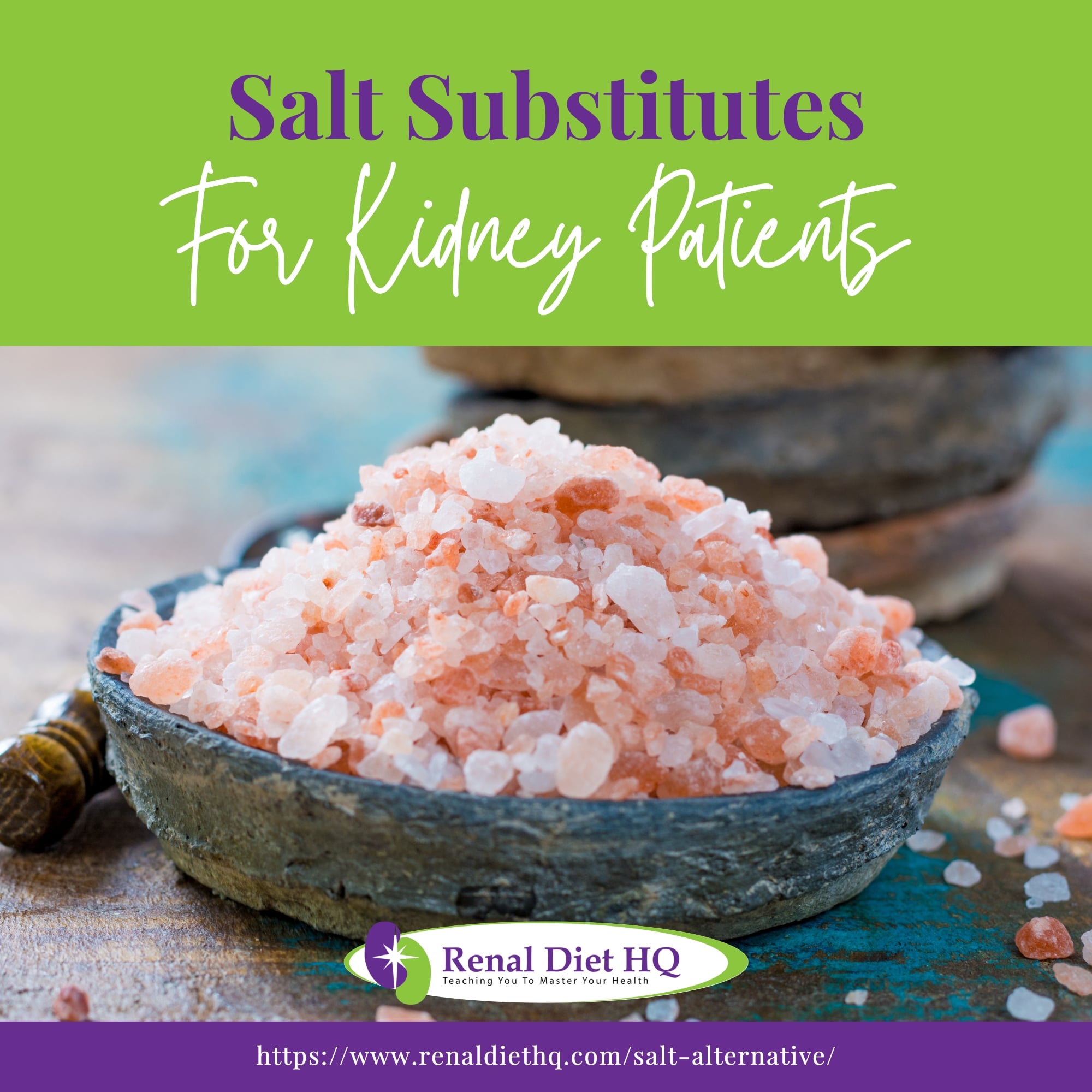
Flavorful Salt-Free Cooking
You don't have to sacrifice flavor when reducing sodium in your meals, herbs and spices offer a world of taste without the health risks associated with salt.
Incorporating creative uses of acidic ingredients like lemon juice and various vinegars can also provide a satisfying zing to dishes.
These salt-free cooking techniques aren't only kidney-friendly, but can also enhance your overall culinary experience.
Herbs Enhance Taste
Herbs will transform your meals, adding a burst of flavor without the need for salt. Embrace herb combinations and alternative seasonings as your taste adjustment strategies for a kidney-friendly diet. By mastering flavoring techniques, you can create salt free recipes that aren't only safe but also delicious.
Fresh or dried, herbs like basil, oregano, thyme, and rosemary can be combined in unique ways to enhance the natural taste of your food. Meanwhile, cilantro, parsley, and chives provide a fresh kick that can replace the piquancy typically provided by salt.
As you become accustomed to these new flavors, your palate will adapt. With patience and experimentation, you'll discover the joy of cooking that prioritizes your health without sacrificing taste.
Creative Acid Use
Incorporating a variety of acids into your cooking can significantly amplify flavors, providing a zestful alternative to salt that'll excite your taste buds and support your kidney health. Acidic ingredients like citrus juice and vinegar can transform your dishes without the need for sodium. Use the table below as a guide to using acidic ingredients effectively.
| Acid Type | Uses in Cooking | Benefits |
|---|---|---|
| Citrus Substitutes | Dressings, marinades, beverages | Enhances flavor, no sodium |
| Vinegar Varieties | Pickling, sauces, slaws | Adds tanginess, aids digestion |
| Acidic Marinades | Tenderizing meat, infusing taste | Reduces need for salt, flavorful |
| Benefits of Lemon Juice | Seafood, salads, teas | Brightens dishes, vitamin C |
| Using Acidic Ingredients | Baking, ceviche, soups | Balances flavors, preserves food |
Challenges of Sodium Reduction
You may find it challenging to reduce your sodium intake because it's often hidden in processed foods, making label reading essential. This is important to take note of when you are dealing with Chronic Kidney Disease.
Adjusting to a low-sodium diet can also mean retraining your taste buds, which takes time and patience.
However, with the right strategies and alternatives, you can maintain a kidney-friendly diet without compromising on flavor.
Hidden Sodium Sources
While carefully managing your diet, it's crucial to be aware of hidden sodium in processed foods that can undermine your efforts to protect your kidneys. Understanding risks associated with high sodium intake is vital.
Hidden dangers lurk in common grocery items, so it's imperative to become proficient at reading labels. Health misconceptions may lead you to overlook sodium content in foods perceived as healthy. Opt for homemade alternatives where possible, as they allow you to control the sodium content.
Here are a few unsuspecting sources of sodium:
- Bread and rolls: Despite their plain taste, they often contain a surprising amount of sodium.
- Cold cuts and cured meats: Sodium is used as a preservative, significantly upping the salt content.
- Canned soups and vegetables: They're convenient but typically loaded with sodium. Always check for low-sodium versions or rinse before use.
Taste Adjustment Period
Adjusting your palate to a low-sodium diet often involves a transitional period where foods may taste less flavorful. You'll face adjustment challenges as your taste preferences have been shaped over years of consuming higher sodium products. Gradual changes are key to success, allowing your taste buds to acclimatize without overwhelming them.
Start by finding alternatives that offer robust flavors, think herbs, spices, and citrus juices. Flavor experimentation becomes an adventure in your kitchen, as you learn to enhance meals without relying on salt.
As you navigate this journey, remember that your efforts aren't just about sacrificing taste but about protecting your health.
In the next section, we'll delve into the essentials of a low sodium diet, ensuring you're well-equipped to make informed choices.
Low Sodium Diet Essentials
Understanding the recommended sodium limits is crucial in managing your kidney health. Typically, aiming for 1,500-2,300mg per day can help prevent further damage to your kidneys.
You'll need to become proficient at reading nutrition labels, as they're your best tool for tracking sodium intake and avoiding hidden sources.
Recommended Sodium Limits
For your kidney health, it's crucial to keep your daily sodium intake between 1,500 and 2,300 milligrams. Adhering to the recommended sodium range minimizes health risks like hypertension and fluid retention, which are particularly concerning for you with kidney issues.
Consider these essentials:
- Salt Substitutes: Choose those without added potassium to avoid overburdening your kidneys.
- Hidden Sodium Sources: Be vigilant about pre-packaged and processed foods where sodium lurks unnoticed.
- Sodium Reduction Challenges: Be patient and persistent. It takes time to adapt to a low-sodium palate.
Reading Nutrition Labels
You'll often need to scrutinize nutrition labels to ensure your meals remain low in sodium, crucial for maintaining kidney health. Understanding nutrition label reading is essential in reducing sodium intake effectively. Pay close attention to the milligrams of sodium per serving, and remember the importance of sodium restriction can't be overstated for those with kidney concerns.
Be vigilant about hidden sodium sources that can lurk in processed foods, condiments, and even beverages. By increasing your sodium content awareness, you'll be better equipped to make informed choices, helping to protect your kidneys from the detrimental effects of excess sodium.
Always aim for foods that contribute to your overall health, and remember that serving others begins with safeguarding your own well-being through conscientious dietary management.
Risky Salt Substitutes
You need to be cautious when selecting salt substitutes, as many contain potassium chloride, which can pose serious health risks if you have kidney disease.
Despite marketing claims, these alternatives aren't always safe and can lead to dangerous levels of potassium in your blood.
Before making a switch, consult your healthcare provider to ensure the substitute aligns with your kidney health needs.
Potassium Chloride Danger
Amidst the array of salt substitutes available, it's crucial to note that many contain potassium chloride, which can pose serious health risks for those with kidney conditions. You must be vigilant in managing potassium intake, as potassium and kidney disease are a dangerous combination.
Here are some salt substitute recommendations:
- Seek potassium chloride alternatives, such as herbs and spices, to enhance flavor without increasing potassium levels.
- Consult with a healthcare provider to understand potential health risks and get personalized advice on safe options.
- Educate yourself on reading labels to avoid hidden sources of potassium in processed foods.
Your commitment to serving your health means finding balance and ensuring safe dietary choices. Remember, the key is to protect your kidneys by making informed decisions about the foods you consume.
Misleading Health Claims
Despite the numerous products marketed as healthy alternatives, many salt substitutes can actually pose significant risks to your kidney health. These products often come with misleading health claims that can lead to confusion and, potentially, harm.
| Risky Salt Substitutes | Issues for Kidney Patients |
|---|---|
| High Potassium Content | Can overburden compromised kidneys |
| Misconceptions of Fancy Salts | No healthier than regular salt |
| Overuse During Taste Adjustment | Can exceed recommended sodium limits |
| Marketing of 'Natural' Salts | Lacks evidence of being kidney-safe |
| Sodium-Free Claims | Might still contain harmful compounds |
You must navigate this landscape with caution, especially during the taste adjustment period. Remember, fancy salts are a misconception and not inherently safer. Always prioritize your health by adhering to recommended sodium limits and consulting with healthcare professionals before changing your diet.
Navigating Spice Blends
When you're managing kidney disease, it's essential to scrutinize the ingredients in store-bought spice blends, as they often contain hidden sodium.
You can create your own homemade mixtures to ensure they're salt-free and kidney-friendly.
This approach not only enhances the flavor of your meals without compromising your health but also gives you complete control over your sodium intake.
Read Blend Ingredients
You'll need to carefully check the ingredients of spice blends to ensure they don't contain added salt, which can be detrimental to your kidney health.
As you navigate this change, remember:
- Reading blend ingredients is vital; look for labels that state 'no added salt' or 'sodium-free.'
- Understanding flavor enhancers like herbs and citrus can help during the taste adjustment period.
- Homemade spice mixtures give you control, avoiding the need to navigate specialty salts.
When you're creating meals, your skill in balancing flavors with kidney-friendly options can make all the difference. It's not just about reducing sodium, it's about reimagining the way you season your food to maintain both taste and health.
Homemade Spice Mixtures
Creating your own homemade spice mixtures is a straightforward way to enhance flavors without adding sodium to your kidney-friendly diet. By exploring homemade spice recipes, you're not just avoiding salt, but you're also tapping into the health benefits of herbs, which can support overall well-being. Salt-free seasoning options abound, think of the zest from lemon or a splash of vinegar, which can add a bright note to your dishes, mimicking the taste-enhancing power of salt.
As you're adjusting to a low sodium diet, cooking with acids like these can be a game-changer.
Transitioning to homemade spice blends may require patience, but it's a rewarding process. Next, let's uncover the truth about specialty salts and their place in a kidney-conscious lifestyle.
Truth About Specialty Salts
You might've heard that specialty salts like Himalayan pink or sea salt are healthier options, but it's important to recognize they contain the same sodium as table salt. These gourmet options don't offer a health advantage, especially when managing kidney disease where monitoring sodium intake is critical.
Use these salts sparingly, just as you'd with regular salt, to maintain a kidney-friendly diet.

Health Myths Debunked
While you may have heard that specialty salts like Himalayan pink or sea salt are healthier than table salt, they're actually just as high in sodium and should be used sparingly, especially if you have kidney issues.
Let's debunk some misconceptions together:
- Health Benefits: Despite their exotic origins, specialty salts offer no significant health advantages over regular table salt when it comes to sodium content.
- Salt Alternatives: Consider using herbs and spices in your kidney friendly recipes for flavor without the sodium spike.
- Sodium Reduction Tips: Be mindful of labels and opt for low-sodium versions of your favorite foods.
Fancy Salts Misconceptions
Despite their unique colors and textures, specialty salts such as Himalayan pink or sea salt contain just as much sodium as regular table salt and aren't better for your kidney health. Misleading marketing may suggest these fancy salts are healthier, but the truth is they pose similar health risks due to their sodium content. When considering taste preferences, remember that managing your condition requires strict attention to sodium intake.
| Salt Type | Sodium Content | Suitable for Kidney Patients? |
|---|---|---|
| Table Salt | High | No |
| Himalayan Pink | High | No |
| Sea Salt | High | No |
| Potassium-based | Varies | Consult with Doctor |
| Salt-free Blends | None | Yes |
Explore alternative options like salt-free seasoning recommendations to flavor your food without compromising your kidney health.
Kidney-Friendly Seasoning Picks
When managing your kidney health, choosing the right seasonings can make all the difference in your diet.
Herbal flavor enhancers, such as oregano, basil, and thyme, offer a burst of taste without the risks associated with excess sodium.
Exploring various spice blend choices that are free from added salt can also provide delicious alternatives to keep your meals both kidney-friendly and full of flavor.
Herbal Flavor Enhancers
In the face of kidney disease, you'll find that incorporating a variety of herbs into your diet can significantly enhance flavors without the need for salt. Embrace the use of:
- Culinary Herbs: Fresh or dried, these can transform your meals. Think basil, parsley, and oregano for an Italian touch.
- Homemade Dressings: Whisk together olive oil, citrus flavors, and herbs for a kidney-friendly salad dressing.
- Herbal Tea: Not just for drinking, use cooled teas as a marinade base for a subtle, aromatic flavor.
These natural seasonings offer a world of possibilities that promote kidney health. By choosing these alternatives, you're not only safeguarding your kidneys but also indulging in the joy of flavorful, wholesome eating.
Now, let's venture into the realm of spice blend choices, another avenue to explore on your culinary journey.
Spice Blend Choices
You'll find that crafting your own kidney-friendly spice blends is a straightforward way to boost flavor without risking your health. Understanding spice blends is key, they can be a safe haven for your taste buds when you're mindful of ingredients. The benefits of homemade blends are plentiful, not only do you control what goes in, avoiding hidden sodium and the risks of potassium chloride, but you also get to tailor flavors to your liking.
Salt-Free Blend Recipes
You can take control of your kidney health by creating homemade seasoning mixes that are both delicious and sodium-free.
These healthy recipe alternatives not only enhance the taste of your meals, but also align with your dietary needs, ensuring you stay within the recommended sodium limits.
Let's explore how to craft these salt-free blends using a variety of herbs and spices to add zest to your cooking without compromising your kidney care.
Homemade Seasoning Mixes
Creating your own salt-free seasoning mixes at home ensures you're spicing up your meals without harming your kidneys. By focusing on homemade seasoning recipes and alternative spice blends, you're taking charge of your health.
Here are a few tips:
- Explore the health benefits of herbs like oregano, thyme, and basil, which can transform a bland dish into a culinary delight.
- Get creative with acid substitutions such as lemon juice or vinegar to add a zesty flavor without the salt.
- Don't hesitate to adapt recipes to your dietary needs, swapping out high-sodium ingredients for kidney-friendly options.
These adjustments not only cater to your health but also allow you to serve up delicious, nutritious meals.
Next, let's delve into healthy recipe alternatives that align with your kidney care.
Healthy Recipe Alternatives
Often, adapting your favorite recipes to be kidney-friendly means crafting your own salt-free spice blends to ensure your meals are both flavorful and safe for your health. Embrace recipe substitutions that focus on health benefits and tackle dietary challenges without sacrificing taste. Utilize cooking techniques that maximize flavor enhancement, like roasting or caramelizing vegetables to bring out their natural sweetness.
Herbs and spices are your allies, they can transform a bland dish into a culinary delight. For a heart-healthy, salt-free blend, mix garlic powder, onion powder, dried oregano, and a pinch of cayenne. This combination can easily elevate poultry, fish, or vegetables. Remember, you're not just avoiding salt, you're inviting a wealth of flavors into your kitchen and nurturing your body with each thoughtful choice.
Exploring Alternative Flavorings
As a kidney patient, you're likely aware of the need to limit sodium. However, that doesn't mean your meals must be bland. Incorporating herbal seasonings can significantly enhance the taste of your dishes without compromising your health.
Acidic flavor enhancers like lemon or lime juice can also provide a zesty kick, replacing the sharpness that salt typically adds to food.
Herbal Seasoning Benefits
Many herbs can significantly enhance the taste of your meals without adding any sodium, offering a safe and flavorful alternative for managing your kidney health. When you're advised to keep within recommended sodium limits, turning to herbal seasoning benefits your diet and supports your body's needs. However, be mindful of the taste adjustment period; your palate may take time to appreciate the robust flavors of herbs in place of salt.
Here are some kidney-friendly seasoning picks:
- Basil: Adds a fresh, aromatic touch to salads and pasta dishes.
- Thyme: Infuses a subtle, earthy flavor into soups and stews.
- Parsley: Brightens flavors and adds a pop of color to your plate.
Stay away from risky salt substitutes that may have adverse effects on your kidney health, and instead, savor the natural goodness of these herbs.
Acidic Flavor Enhancers
You'll find that acidic ingredients like lemon juice and vinegar can brighten your meals without the need for salt, making them ideal flavor enhancers for your kidney-friendly diet. Citrus substitutes, such as lemon or lime, can add a fresh zest to dishes, while vinegar options provide a tangy kick. When considering garlic alternatives or onion replacements, look to powders or infused oils that deliver the flavor without the sodium.
| Acidic Ingredient | Suggested Use | Kidney Benefit |
|---|---|---|
| Lemon Juice | Fish, vegetables, dressings | Low sodium, adds zest |
| Vinegar | Marinades, sauces, salads | Low sodium, enhances flavor |
| Garlic Powder | Meats, soups, stews | Flavorful sodium alternative |
| Onion Powder | Gravies, dips, vegetable sautéing | No added salt, aromatic |
FAQs for Salt Substitutes for Kidney Patients
You can't use natural or organic salts without concern, they're still high in sodium. Don't fall for salt myths, unrefined salts cause the same fluid retention.
Instead, focus on herbal seasonings to enhance flavor without risking your potassium levels. It's crucial to prioritize your health and serve your body's needs with smart, kidney-friendly choices.
Always consult a nutrition expert for advice tailored to your condition.
Your body's dashboard lights up with warning signals when you've got too much sodium onboard. You might notice swelling (edema), especially in your feet and hands, a clear sign to monitor your intake.
A spike in blood pressure (hypertension) and puffiness from fluid retention are other red flags. If you're constantly thirsty, it's another thirst signal that your sodium levels could be high.
It's crucial to heed these symptoms and adjust your diet accordingly.
You should be cautious about mineral water with sodium, as it may affect your kidney health. Sodium retention can disrupt fluid balance, raise hypertension risks, and complicate dialysis treatments.
Opt for water types low in sodium to maintain a healthy balance.
Always consider your individual health needs and consult with a healthcare professional to manage your dietary choices effectively, especially when serving others who rely on your nutritional expertise.
Navigating the culinary minefield of dining out, arm yourself with restaurant strategies to manage your sodium intake. Start with ingredient inquiries, asking chefs to prepare meals with sodium alternatives.
Practice portion control to minimize your intake and always read labels on pre-packaged meals.
Your vigilance in these practices isn't just about taste, it's a commitment to your health, ensuring you serve your body with the care it deserves.
Salt Substitutes for Kidney
As you sail the savory seas of kidney care, let your taste buds anchor in the harbor of herbs and spices.
Embrace this culinary voyage, where thyme is your compass and garlic your north star.
Remember, while salt's siren call is strong, your health's chorus is stronger.
Craft your meals with the wisdom of nutrition's map, and watch your kidney garden flourish.
Here's to flavorful feasts that keep your body's delicate balance in check.
Bon appétit and remember that people with kidney disease can live a full and enriched life.





